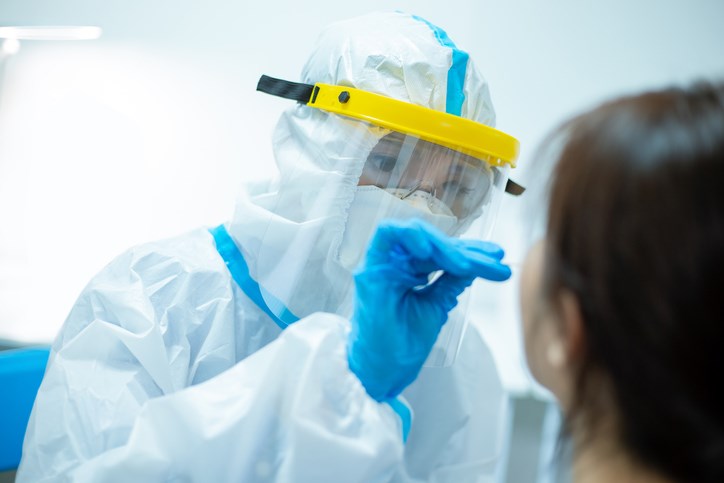Ottawa wants to increase COVID-19 testing from 10,000 to 100,000 people a day, according to government contract bid documents released Jan. 20.
“The government of Canada is looking to enhance testing capacity across Canada,” Health Canada told Glacier Media.
Documents said the work’s aim is to increase capacity to collect and process samples from mainly asymptomatic patients using a polymerase chain reaction (PCR) test.
Such additional capacity would be deployed as needed for federal and provincial surge support, testing at border ports of entry and during quarantine periods.
Health Canada said in a statement to Glacier Media that awarding of the contract is expected by the end of February.
Health Canada said PCR tests detect the virus itself and diagnose COVID-19 with samples collected via saliva sample or nose or throat swabbing.
As of Jan. 20, 16.78 million tests have been done nationally, more than a million in B.C. alone. Proportionately, most have been done in Quebec at 8.76 million.
Health Canada said provinces and territories are aware of the procurement process and were consulted in advance of its posting. It did not say when increased testing might start.
B.C.’s Ministry of Health said federal testing of asymptomatic individuals doesn't affect provincial testing strategy or capacity, and that B.C.’s COVID-19 testing strategy focuses on PCR testing of symptomatic individuals.
However, documents said bidders able to begin operations within one month of contract award or less had the best chance of winning the contract. Costs would be dependent on the bids.
Bidders were asked to detail the minimum and maximum number of samples they might process per day in each of three regions:
• Western including British Columbia, Alberta, Saskatchewan, Northwest Territories and Yukon;
• Central including Manitoba, Ontario, Quebec, and Nunavut; and
• The Maritimes including New Brunswick, Nova Scotia, Newfoundland and Labrador, and Prince Edward Island.
Bidders were also asked to address how and where samples and follow up samples would be collected and processed within 24-48 hours, from sample collection to results communication to local public health authority.
The PCR tests are different from rapid tests. Ottawa said in November it has procured more than 38 million such tests.
Health Canada said it has authorized 51 testing devices, of which 10 are point-of-care tests, including both PCR and rapid - or antigen - tests.
“The government of Canada has made a significant purchase of point-of-care PCR and antigen test kits—up to 7.9 million ID NOW point-of-care PCR tests, 23 million Panbio rapid antigen tests and 7.6 million BD Veritor rapid antigen tests,” the statement said. “This purchase was made with the intention of providing tests to provinces and territories at no cost to support their testing ramp-up efforts.”
The department said distribution of Abbott ID NOW and Panbio tests began on Oct. 21 and BD Veritor on Nov. 26. As of Jan. 19, a total of 1,344,600 Abbott ID NOW tests, 10,896,250 Abbott Panbio tests and 2,102,160 BD Veritor tests have been distributed.
“Approximately 90% of tests ultimately go towards provinces and territories – allocated on a per capita basis with a small portion of tests reserved for ‘hot spots’ – with the remainder deployed to northern, remote and indigenous communities, as well as in areas of federal responsibility.
Such areas include correctional facilities and national defence needs.
The World Health Organization (WHO) in September promoted use of rapid tests as a way of locating the virus in situations of widespread community transmission.
The WHO called testing a cornerstone of COVID response, laying the groundwork for vaccine use.
“While molecular tests started to be rolled out within a month of the virus being sequenced, these tests are mainly laboratory based, relying on infrastructure and trained personnel to conduct them,” the WHO said. “Rapid tests to detect the presence of the virus at the point of care, which are faster and cheaper, are a vital addition to the testing arsenal needed to contain and fight COVID-19.”
WHO director general Dr. Tedros Adhanom Ghebreyesus said, “High-quality rapid tests show us where the virus is hiding, which is key to quickly tracing and isolating contacts and breaking the chains of transmission. The tests are a critical tool for governments as they look to reopen economies and ultimately save both lives and livelihoods.”
[email protected]



